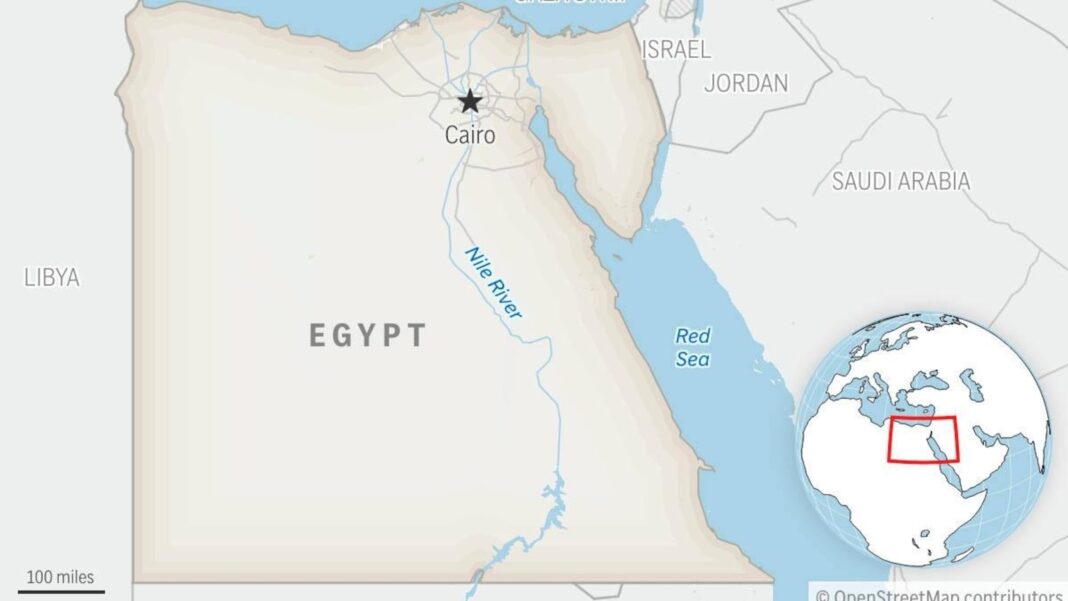[ad_1]
The Dalai Lama said on Wednesday that a non-profit that he has founded will have the sole authority to recognize his future reincarnation, countering China’s insistence that it will choose the successor of the Tibetan spiritual leader.
The remarks by the leader, who turns 90 on Sunday, came during a week of celebrations to mark his birthday.
Beijing views the Dalai Lama, who fled Tibet in 1959 after a failed uprising against Chinese rule, as a separatist. The Dalai Lama has previously said his successor will be born outside China and urged his followers to reject anyone chosen by Beijing.
“I am affirming that the institution of the Dalai Lama will continue,” the Dalai Lama said in a video message, setting off claps and cheers from more than 100 monks in maroon robes who had gathered in a library in Dharamshala, a town in the foothills of the Himalayas in northern India.
Chinese foreign ministry spokesperson Mao Ning reiterated on Wednesday that Beijing had to approve the identity of the successor and that it had to be done in China through a centuries-old ritual.
The event in Dharamshala, India was also attended by journalists from around the world and long-time supporters including Hollywood star Richard Gere, who sat in the audience in a hall which had ornate paintings of the Buddha and photographs of the Dalai Lama on the walls.
The Dalai Lama added that the Gaden Phodrang Trust, the non-profit that he set up to maintain and support the tradition and institution of the Dalai Lama, has the sole authority to recognize his future reincarnation in consultation with the heads of Tibetan Buddhist traditions.
“They should accordingly carry out the procedures of search and recognition in accordance with past tradition … no one else has any such authority to interfere in this matter,” the Dalai Lama said.
The Dalai Lama was in good health and has not given any written instructions yet on the succession, said Samdhong Rinpoche, a senior official of the Gaden Phodrang Trust.
He told reporters in Dharamshala that the successor can be of any gender and that their nationality would not be restricted to Tibet.
Penpa Tsering, leader of the Central Tibetan Administration, the Tibetan government-in-exile in India, said the Dalai Lama would be open to visiting Tibet if his health permits and if there were no restrictions from China, which would mark his first visit to the country since 1959.
“It’s entirely dependent on China and the Chinese government,” he said, adding that Beijing had put a condition that if the Dalai Lama visits, he should stay back.
“His holiness’ response is ‘If I get to go to Tibet and China, I will go, but I will not live there, because there is no freedom there’. This is also connected with the reincarnation where his holiness says ‘I will be born in a free world’,” Tsering said.
Chinese foreign ministry spokesperson Mao Ning said the country’s leaders had the right to approve the Dalai Lama’s successor, as a legacy from imperial times, and that China practices a policy of freedom of religious belief.
A selection ritual, in which the names of possible reincarnations are drawn from a golden urn, dates to 1793, during the Qing dynasty.
“The child reincarnation of a major Living Buddha such as the Dalai Lama and the Panchen Lama needs to be identified through lot-drawing from a golden urn and approval by the central government,” Mao said at a regular news conference.
Tsering, the leader of the government-in-exile, said the U.S. had lifted some restrictions on funds for Tibetans in exile and that the Tibetan government was also looking for alternate sources of funding.
The United States, which faces rising competition from China for global dominance, has repeatedly said it is committed to advancing the human rights of Tibetans. U.S. lawmakers have previously said they would not allow China to influence the choice of the Dalai Lama’s successor.

The spiritual head of Tibetan Buddhists is regarded as one of the world’s most influential figures, with a following extending well beyond Buddhism. The choice of a successor is a matter of riveting interest not only for followers of his religion, but also China, India, and the United States, for strategic reasons.
Tibetan tradition holds that the soul of a senior Buddhist monk is reincarnated after his death.
The 14th Dalai Lama, born as Lhamo Dhondup to a farming family in what is now Qinghai province on July 6, 1935, was identified as such a reincarnation when he was just two years old.
A search party sent by the Tibetan government made the decision on the basis of several signs, such as a vision revealed to a senior monk, according to the Dalai Lama’s website. The searchers were convinced when the toddler identified belongings of the 13th Dalai Lama with the phrase, “It’s mine, it’s mine.”
In the winter of 1940, Lhamo Thondup was taken to the Potala Palace in Lhasa, the capital of today’s Tibet Autonomous Region, and officially installed as the spiritual leader of Tibetans.
He has lived in exile in northern India since 1959, after fleeing a failed uprising against the rule of Mao Zedong’s Communists.

In his book Voice for the Voiceless, released this past March, the Nobel laureate wrote that his successor would be born outside China. He said it is inappropriate for Chinese Communists, who reject religion, “to meddle in the system of reincarnation of lamas, let alone that of the Dalai Lama.”
But China has said its leaders have the right to approve the Dalai Lama’s successor, as a legacy from imperial times. A selection ritual, in which the names of possible reincarnations are drawn from a golden urn, dates to 1793, during the Qing dynasty.
Beijing brands the Dalai Lama, who won the Nobel Peace Prize in 1989 for keeping alive the Tibetan cause, as a “separatist” and prohibits displays of his picture or any public show of devotion towards him.
[ad_2]
Source link





